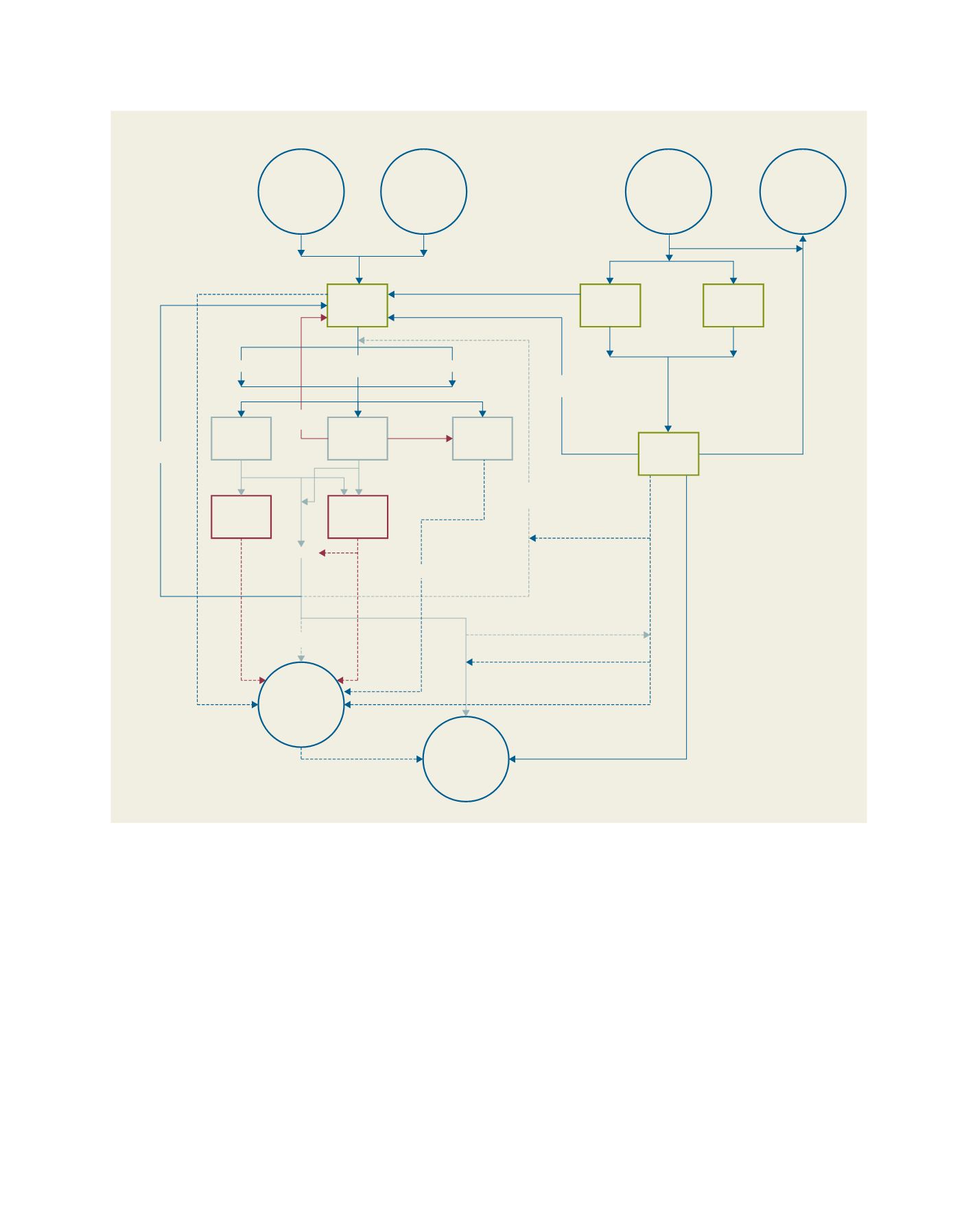

[
] 280
E
conomic
D
evelopment
and
W
ater
socioeconomic status of the household. In addition to
these household consumption patterns, an integrated
framework must capture the consumption from yard
taps, private wells, water kiosks and private water
vendors. It must also account for a variety of differ-
ent on-site and off-site sanitation options such as pit
latrines, septic tanks and the (often missing) waste-
water treatment. The major impact poor sanitation
has on the pollution of potential water sources must
also be accounted for. In most African cities adequate
water treatment is provided at the treatment plant, but
the potable water is contaminated in the distribution
system. Intermittent supplies and low pressures encour-
age stagnancy and the entry of contaminants which
deteriorate the microbiological water quality, resulting
A water framework for African cities
IUWM contextualizes the water sources, water supply, wastewa-
ter and stormwater within an integrated urban water framework in
order to understand the dynamic interactions between the various
components of the urban water system. Unfortunately, most exist-
ing integrated frameworks, such as Urban Volume and Quality,
Aquacycle or CityWaterBalance, are designed for the conditions of
cities in developed countries, neglecting the specific challenges of
cities in sub-Saharan Africa. Hence there is a need for an urban water
framework specifically designed for the cities in sub-Saharan Africa.
3
An integrated framework designed for African cities has to
consider a number of water and sanitation practices characteristic
of African cities. Water consumption conditions include the huge
disparity of water consumption, ranging from 40 to 255 litres per
person per day, depending on the type of service provision and the
Groundwater
Groundwater
Surface water
Receiving water
Rainwater
Evapotranspiration
Water
supply
Roof
Surface
Runoff
storage
Kitchen
laundry and
bathroom
Toilet
Irrigation
Pit latrine
Septic
tanks
Rainwater harvesting
Leakage
Public tab
Yard tab
Conventional HH
connection
Wastewater
recycle
Exfiltration
Sewer
Infiltration
Overflow
Inflow
Recharge/infiltration
Subsurface flow
Cross
contamination
Stormwater
collection
Cascading
Greywater
reuse
A tailored integrated urban water framework for cities in sub-Saharan Africa
Source: Vairavamoorthy et al, 2012


















